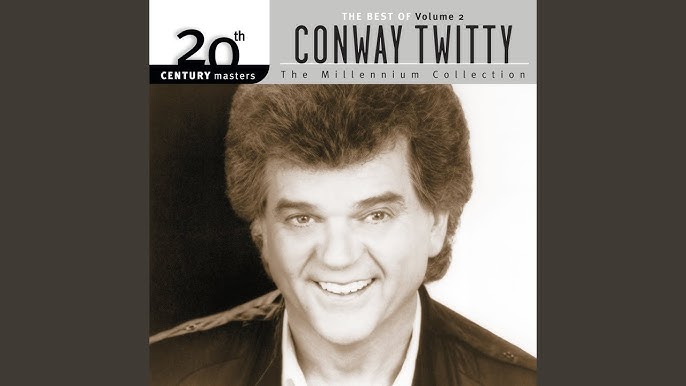
About the song
Conway Twitty’s “Julia”. Released in 1987, this melancholic ballad marked a turning point for the legendary country singer. Now, Twitty was no stranger to heartache anthems. After all, his rich baritone and smooth phrasing had built a career on capturing the complexities of love and loss. But “Julia” felt different. Here, the pain wasn’t raw and desperate; it was a simmering ache, a quiet desperation that resonated deeply with a more mature audience.
---> Scroll down for the VIDEO
Composed by songwriting duo John Jarvis and Don Cook, the song unfolds like a memory, tinged with nostalgia and regret. The opening lines paint a vivid picture: “The air hangs heavy with the scent of honeysuckle vine / A Carolina summer night, the year was ’59.” We’re immediately transported to a specific time and place, a bygone era where innocence and summer nights intertwined. But this idyllic setting is quickly shattered by the arrival of Julia.
Twitty doesn’t tell us much about Julia herself. She remains an enigmatic figure, a symbol of lost love rather than a fleshed-out character. This ambiguity allows the listener to project their own experiences onto the song. Perhaps Julia was a summer fling, a brief encounter that left an indelible mark. Maybe she was a love that could never be, a forbidden flame that flickered and died. The beauty of the song lies in its universality, its ability to tap into that bittersweet ache of a love once cherished but ultimately lost.
---> Scroll down for the VIDEO
The melody itself is a masterclass in country storytelling. It’s a slow, deliberate waltz, mirroring the narrator’s contemplative state. The gentle strum of the acoustic guitar underscores the vulnerability in Twitty’s voice as he recounts the story. The chorus, with its soaring refrain of “Julia, oh Julia, where did you go?” becomes an anthem for lost love, a question echoing through the years.
“Julia” wasn’t just a hit song; it was a turning point in Twitty’s career. It showcased a new depth and maturity in his artistry, proving he could navigate the complexities of love and loss with as much grace as he delivered foot-stomping honky-tonk anthems.
The song resonated deeply with audiences, reaching number two on the Billboard Hot Country Singles & Tracks chart. “Julia” remains a timeless classic, a testament to Twitty’s enduring legacy and his ability to capture the universal language of the heart.